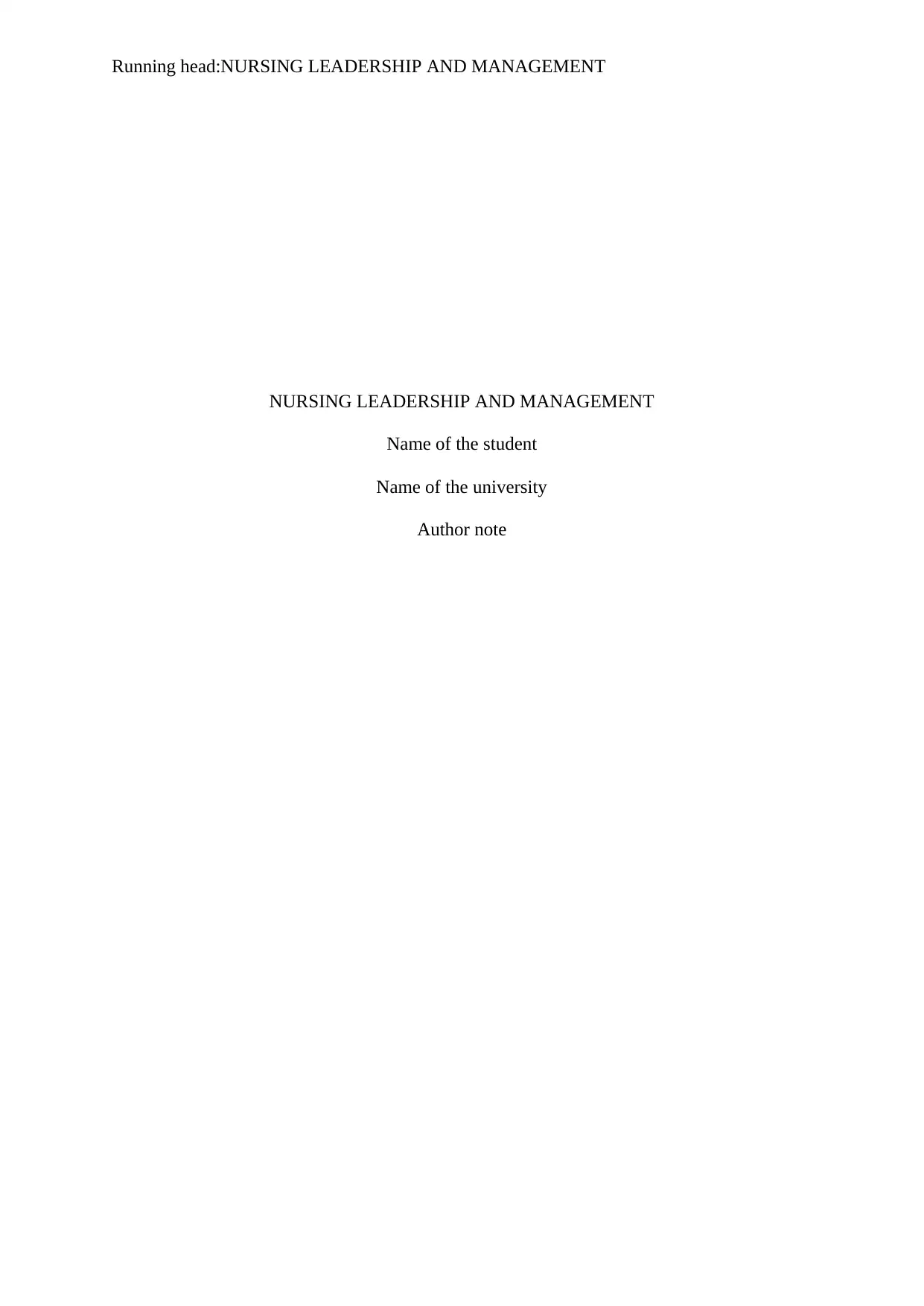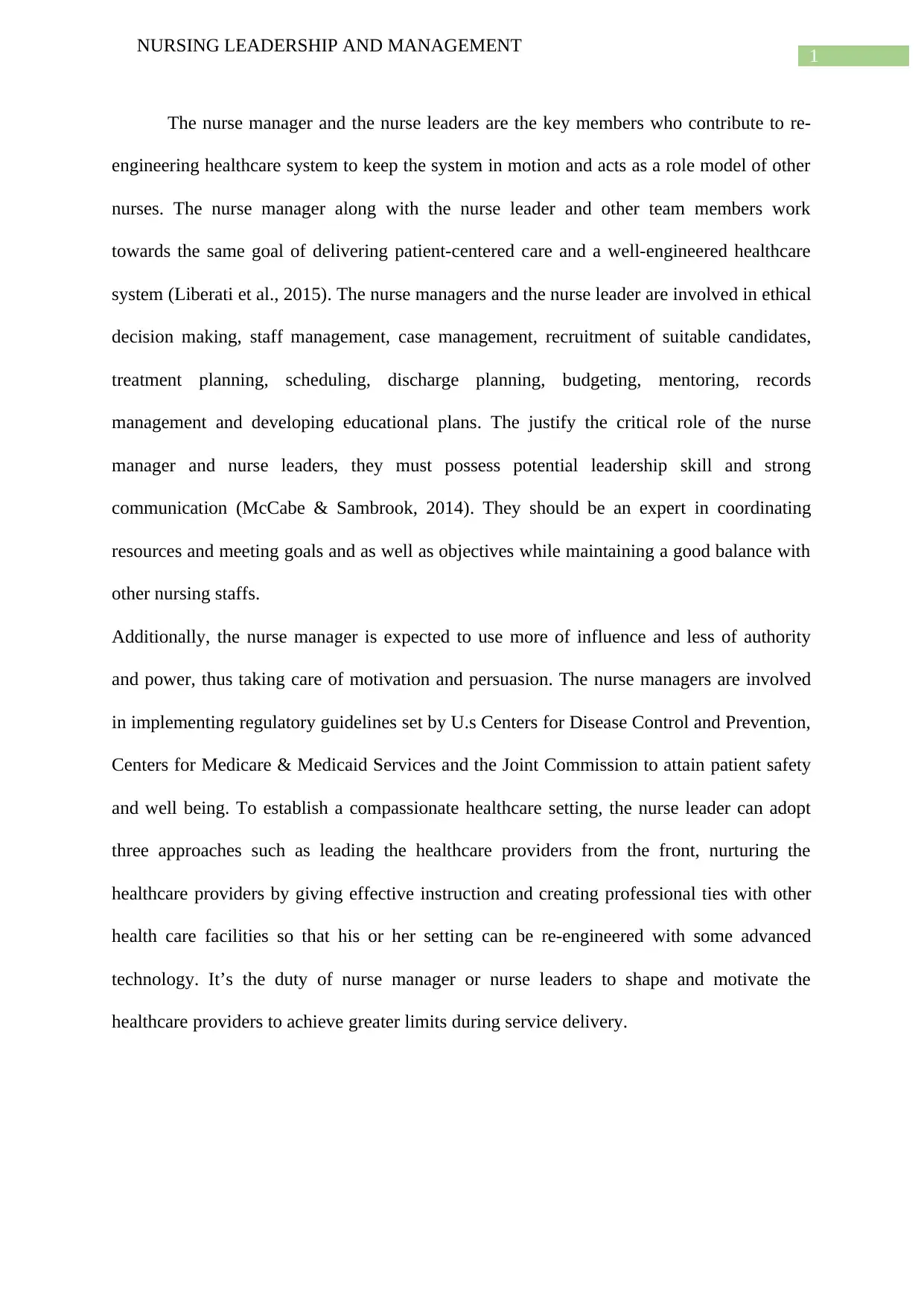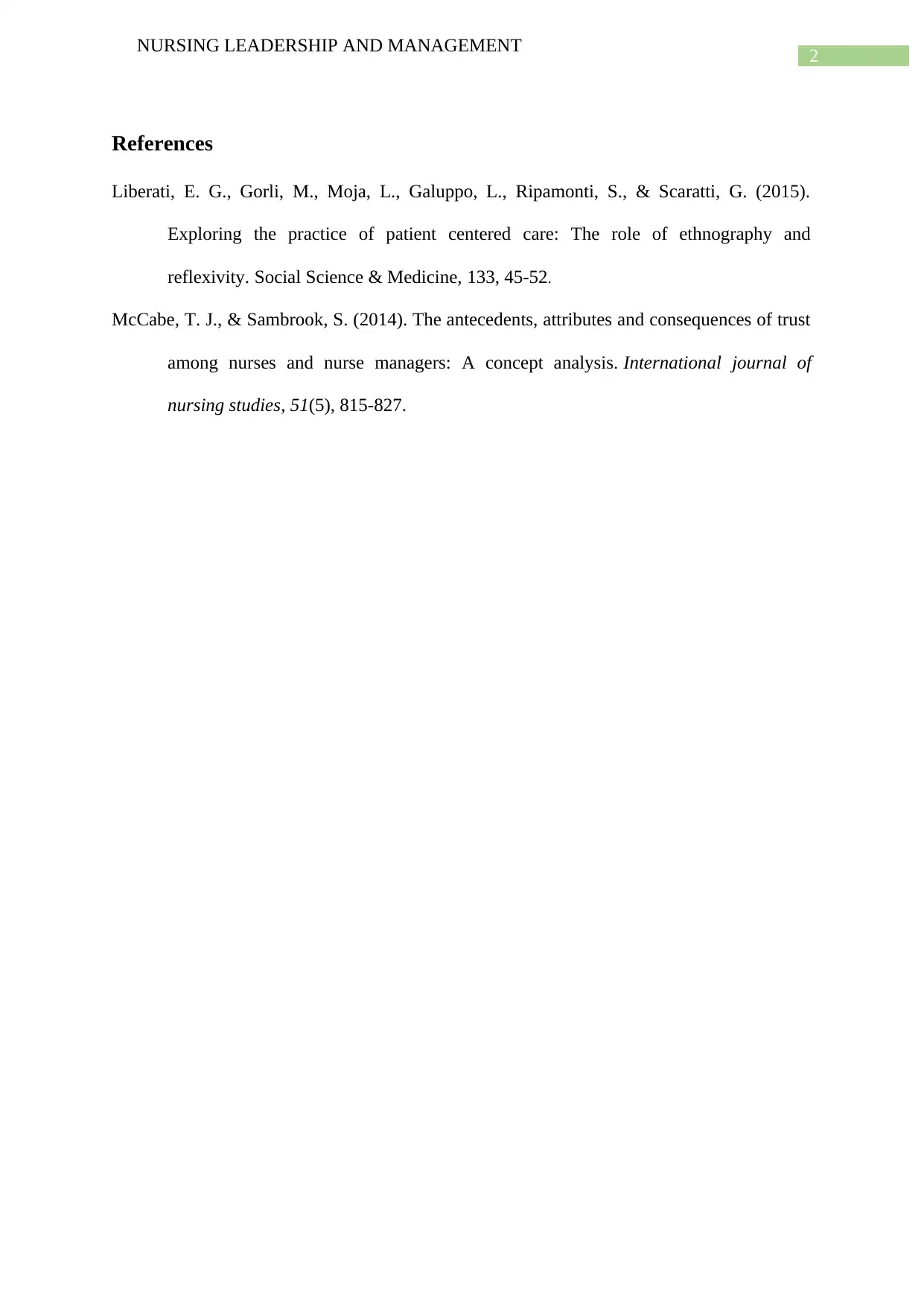Nursing Leadership and Management: Leadership and Healthcare Settings
VerifiedAdded on 2022/08/19
|3
|436
|16
Report
AI Summary
This report examines the critical roles of nurse managers and leaders in the healthcare system. It emphasizes their contributions to patient-centered care, ethical decision-making, staff management, and adherence to regulatory guidelines. The report highlights the importance of strong leadership skills, effective communication, and the ability to motivate healthcare providers. The nurse manager's role in implementing guidelines from the U.S. Centers for Disease Control and Prevention, Centers for Medicare & Medicaid Services, and The Joint Commission is also discussed. Furthermore, it suggests strategies for nurse leaders to create a compassionate healthcare setting and foster professional relationships with other health care facilities to re-engineer the healthcare system. The report underscores the significance of leadership in shaping the healthcare environment and improving patient outcomes.
1 out of 3










![[object Object]](/_next/static/media/star-bottom.7253800d.svg)